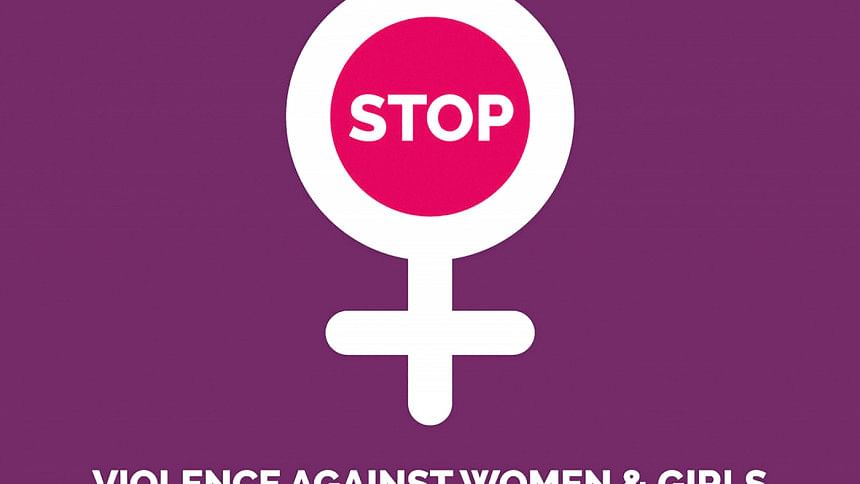Challenges of ensuring justice for rape victims

Currently in Bangladesh, rape, as one of the most pervasive and gruesome violations of human rights, is alarmingly on the rise. Despite the existence of specific social and judicial framework for addressing the crime, in most cases the perpetrators get away with sexual pillage.
Rights Organisation Odhikar estimates approximately 14718 rape victims from 2001 to 2019; among them 7664 were children. As of 2020, between January and June, at least 1,387 children were subjected to different forms of violence and abuse – a report by Bangladesh Shishu Adhikar Forum (BSAF) reveals. Ain O Salish Kendro (ASK), a human rights organisation, reveals, from January to August 2020, total 889 women were raped, 41 were killed after being rape, 192 instances of attempt to rape and 9 suicides, committed in connection with or in pursuance of rape.
According to ASK, domestic violence, acid attacks and other forms of sexual violence are also on the rise at present times. A vast number of such crimes go unreported. Considering the fact that sexual violence is still treated as a taboo in Bangladesh and that the girl victims are held socially responsible for the violence they undergo; it is rational to infer that the actual number is far higher.
Following the spike in rape and other forms of sexual violence, Liberia in September 2020, Sierra Leone in February 2019, among several others, declared emergency over rape and sexual violence. It was done by acknowledging the severity of the situation, and to introduce much needed measures to address the issue.
It is time Bangladesh Government takes lessons and ratchets up its efforts to bring a staggering halt to sexual violence. To address this scourge, sexual violence against women should be declared a national emergency. It will mean that state resources will more readily be diverted to tackle this issue. A comprehensive national framework to uproot this menace has to be put in place as part of this emergency while fixing the loopholes in existing laws and enacting necessary provisions to take a holistic approach.
In 2016 the national Bengali daily Prothom Alo published a comprehensive research report examining 7864 cases from 2002 to 2016 filed under the Prevention of Oppression against Women and Children Act, 2000 from Dhaka district. The findings revealed that conviction was awarded in only 3% of the cases.
Years of Research suggest that insufficiency of evidence, incompetency of the investigating officer, lack of coordination with prosecutors, inadequacy on part of the prosecution, delay in trial, reluctance of witnesses to testify, numerous adjournments, pending status of cases for a lengthy period, increase in frivolous and vexatious cases are some of the root causes that lead to low rate of conviction and miscarriage of justice. All these contribute to making the victims lose confidence in the justice system. In many cases, victims and the families prefer to take resort to extra-legal ways over getting the cases reported through proper channels. As part of national measures, all these issues need to be properly addressed.
The prevailing legislative inconsistencies dealing with violence against women further drops the rate of accountability of perpetrators. This results in secondary victimisation of the aggrieved. The colonial definition of rape bars victims, other than women to access fair and speedy justice. Boys or men, members of transgender community or even women who fail to prove penetration, cannot seek justice under section 9 of the 2000 Act, read with section 375 of the Penal Code, 1860. This is particularly problematic considering how rape laws across the globe has received a much more comprehensive definition inclusive of other forms of sexual violence.
The anachronistic provision i.e. Section 155(4) of the Evidence Act 1872 permits questioning the character of rape victims to impeach her credibility. There is no rape shield law to protect her from this utter humiliation. Public disclosure of the identity of rape victims is harmful for the victims given the social settings in Bangladesh.
Additionally, absence of provisions criminalising marital rape is a reflection of the nation's submission to patriarchy. Rise of domestic violence against women during the pandemic and State's failure to respond in a manner commensurate to the crisis shows how unsuccessful it has been in protecting its women altogether. A dearth of emergency state action could set women back decades and reverse all the advancement made in the past.
Lastly, it is to be noted that law and order can at best award stringent punishments to the culprit in no time and ensure justice for the victims while ensuring proper administration of justice. However, law alone cannot communicate ethics, norms or erase the misogynistic societal order prevailing from centuries.
For prevention of sexual violence, every man, woman and every single person has to come forward to break the generational cycle of misogyny and be part of the solution.
The writer is a student of LLM, Department of Law, University of Chittagong.

 For all latest news, follow The Daily Star's Google News channel.
For all latest news, follow The Daily Star's Google News channel. 



Comments